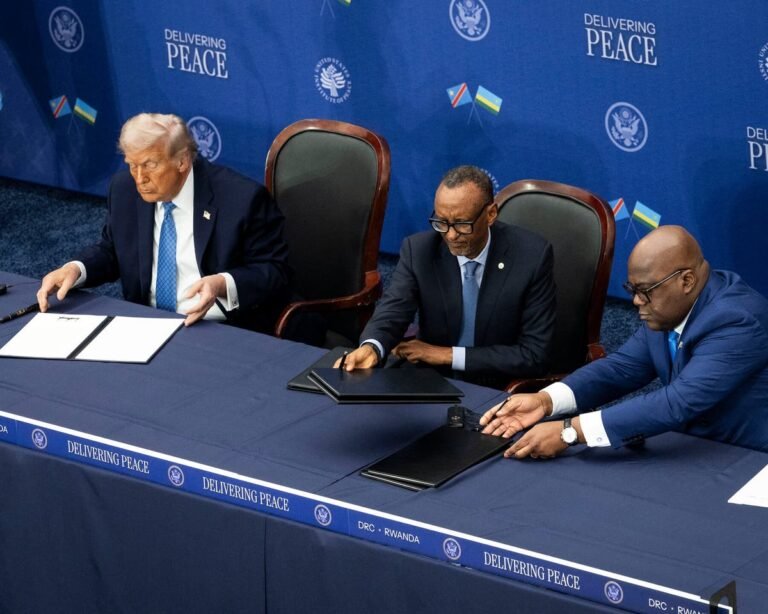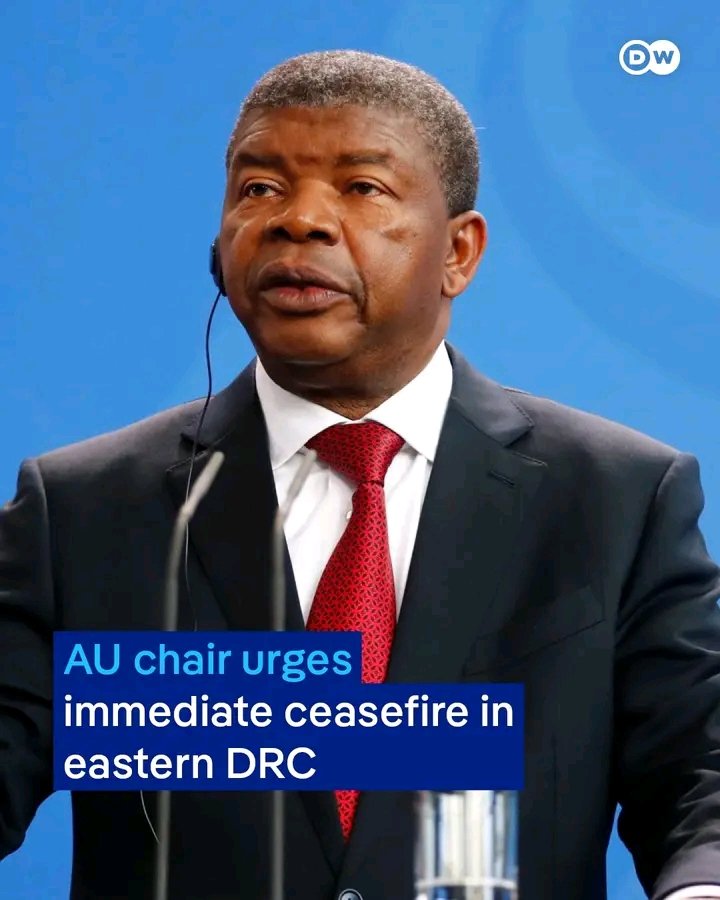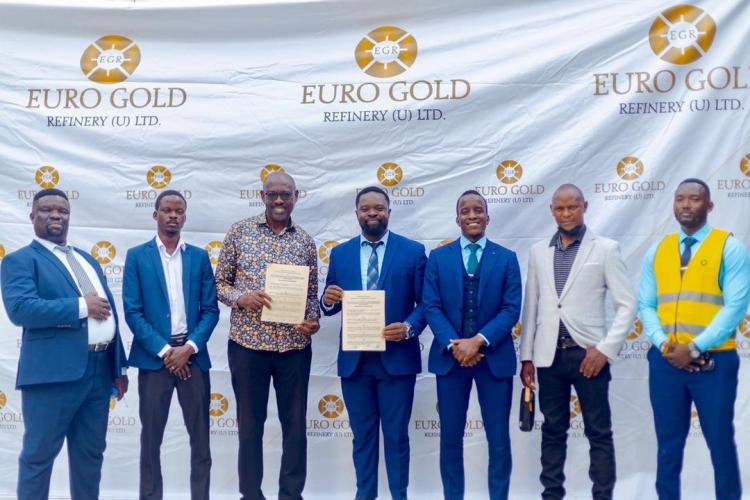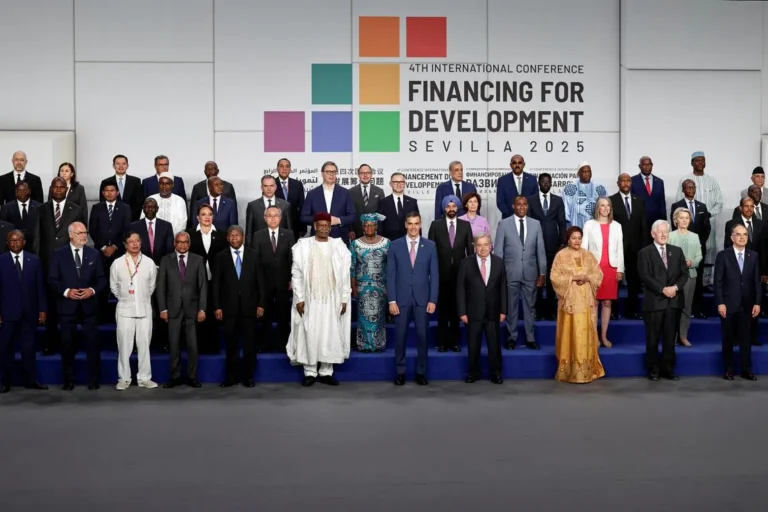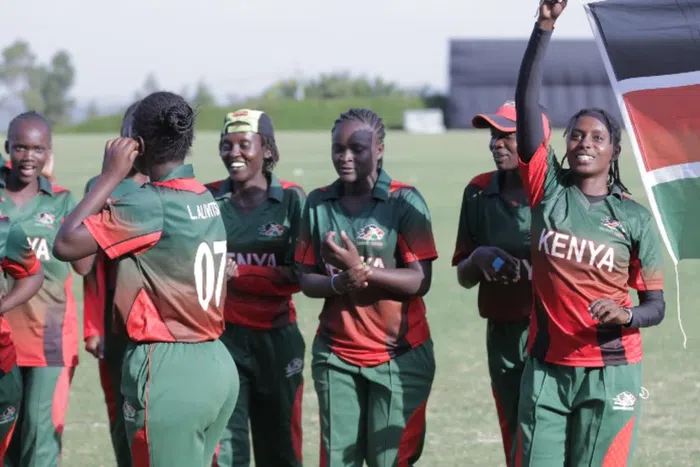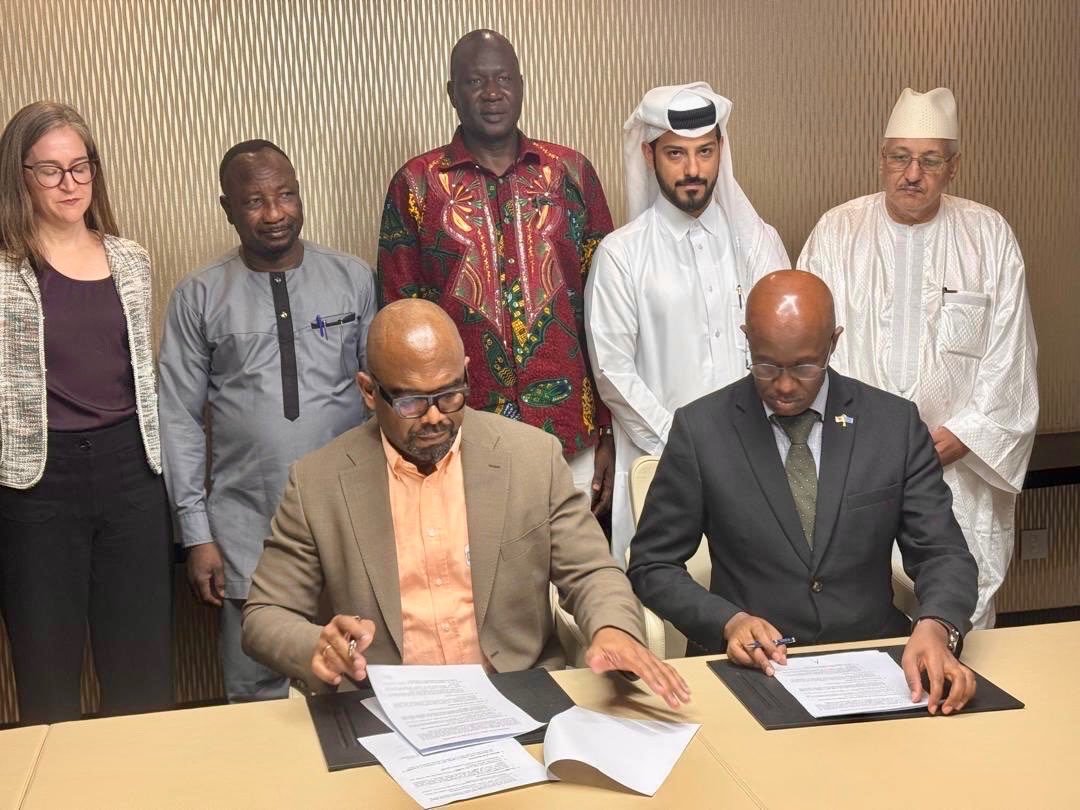
Cautious Step as Congo, M23 Agree to Monitor Ceasefire in Doha Talks
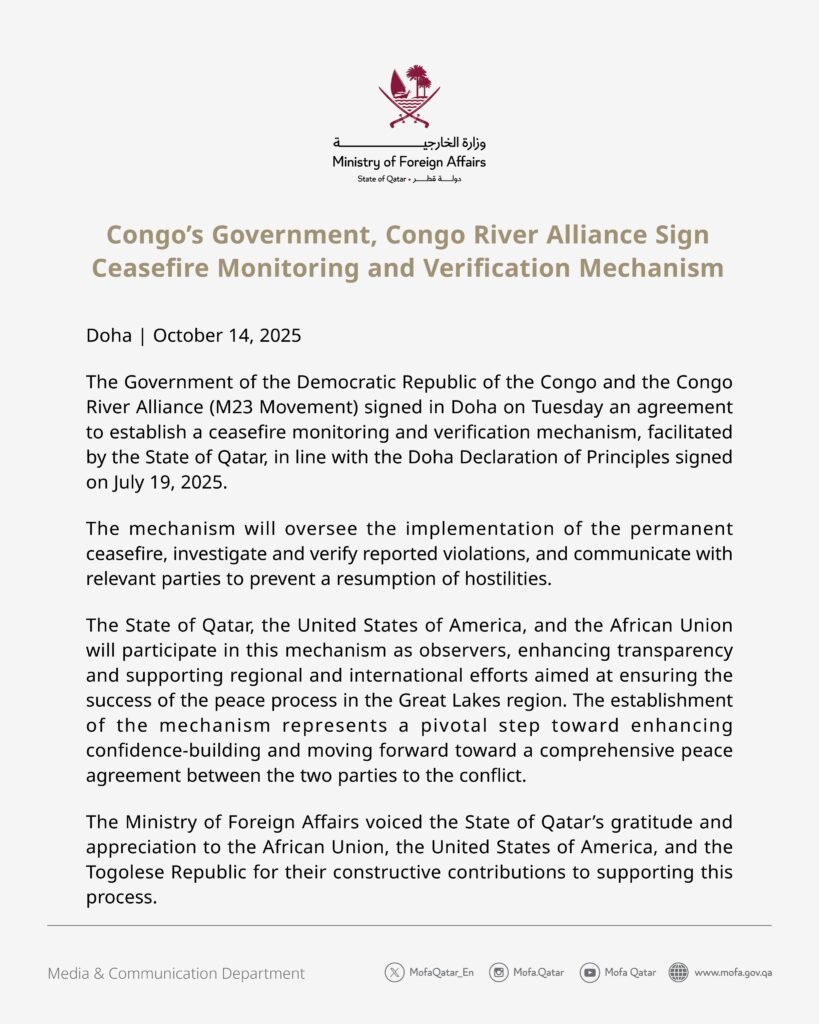
Doha | October 14, 2025 – In a significant yet cautious step towards peace, the Democratic Republic of Congo (DRC) and the M23 rebel group, formally known as the Alliance Fleuve Congo/March 23rd Movement (AFC/M23), signed an agreement on Tuesday to establish a joint mechanism to monitor a permanent ceasefire.
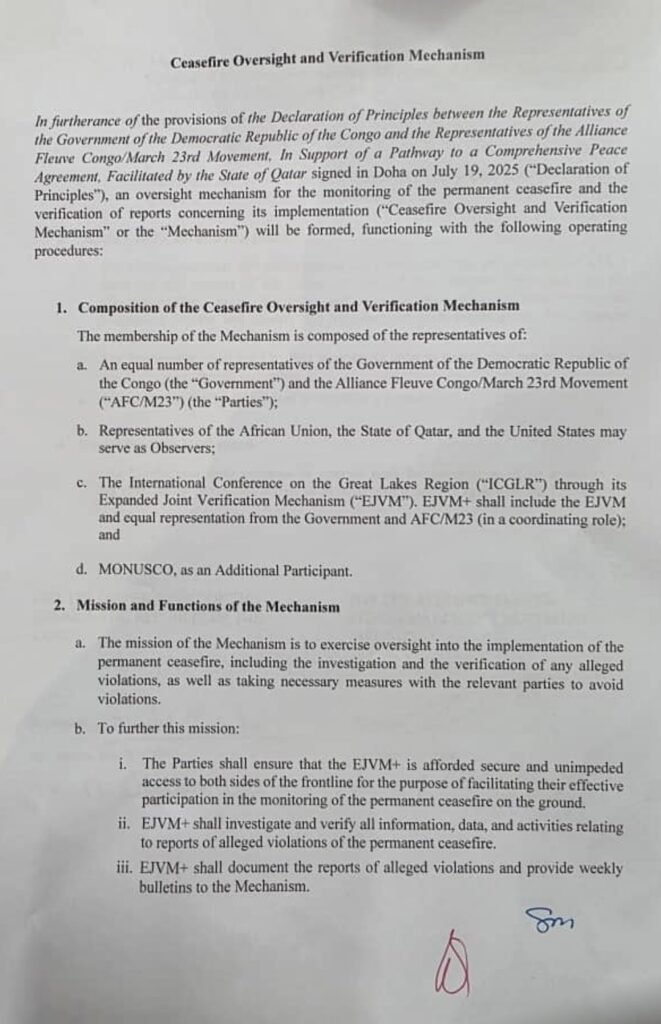
The deal, facilitated by Qatari mediators in Doha, aims to bring a durable end to the long-running conflict in eastern Congo. The signing builds upon the Declaration of Principles the parties agreed to in the Qatari capital on July 19, 2025.
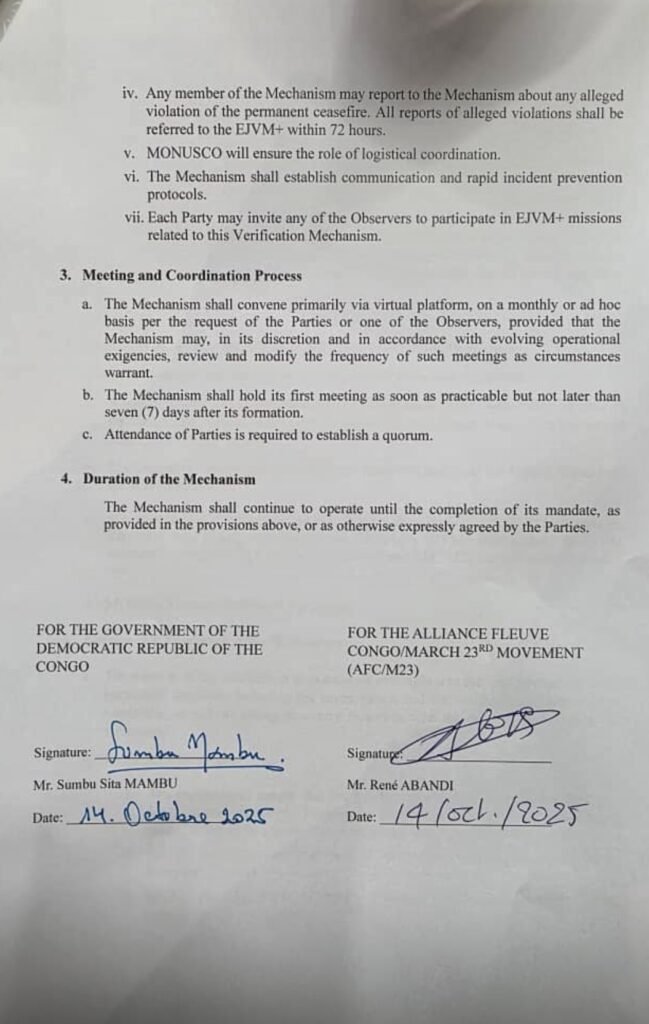
The newly formed Ceasefire Oversight and Verification Mechanism is designed to oversee the implementation of the ceasefire, investigate and verify alleged violations, and work to prevent a resumption of hostilities.
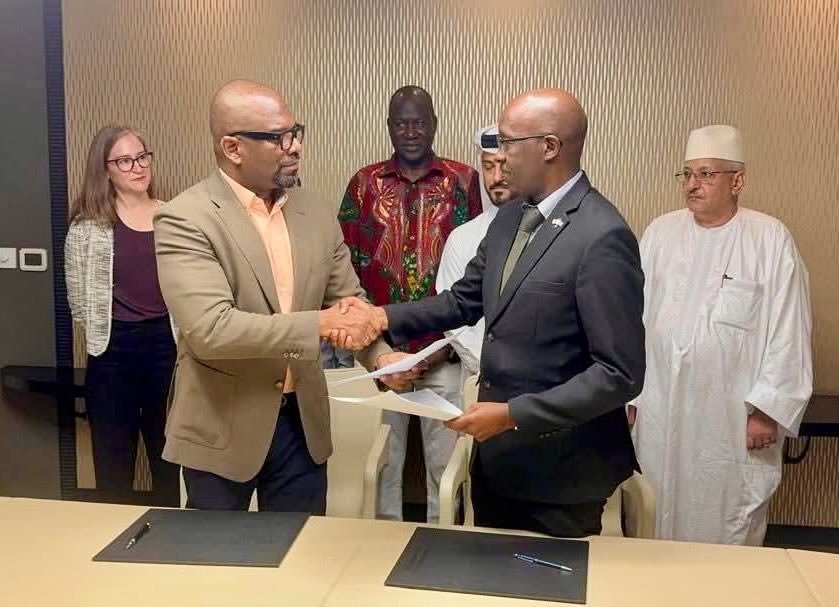
How the Monitoring Mechanism Will Work
According to the signed documents, the mechanism will be composed of:
· An equal number of representatives from the DRC government and the AFC/M23.
· Observers from the African Union, the State of Qatar, and the United States.
· A coordinating body, referred to as EJVM+, which incorporates the International Conference on the Great Lakes Region’s (ICGLR) Expanded Joint Verification Mechanism with equal representation from the two parties.
· The UN peacekeeping mission, MONUSCO, as an additional participant with a logistical coordination role.
Key functions of the mechanism include granting monitors “secure and unimpeded access” to both sides of the frontline to investigate violations. All alleged breaches of the ceasefire must be referred to the EJVM+ for investigation within 72 hours. The mechanism will primarily meet virtually on a monthly or ad-hoc basis and is required to hold its first meeting within seven days.
International Support and Cautious Optimism
The international community has welcomed the accord. The U.S. government commended the parties, stating the agreement is a “critical step” that brings them closer to a comprehensive peace accord and advances the implementation of the broader Washington Peace Agreement.
The Qatari Ministry of Foreign Affairs expressed gratitude to the African Union, the United States, and the Togolese Republic for their contributions to the process, highlighting the mechanism’s role in enhancing transparency and confidence-building.
Despite this optimism, the move is met with historical skepticism, as multiple ceasefire agreements between the Congolese government and the M23 have collapsed in the past. The success of this new monitoring mechanism is seen as a pivotal test for the wider peace process in the restive Great Lakes region.

